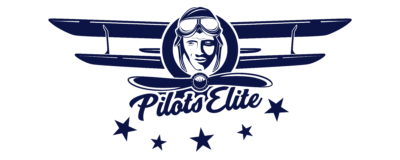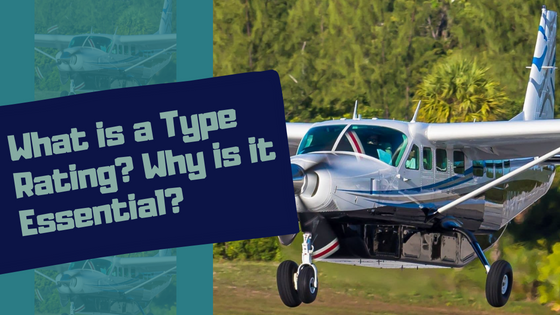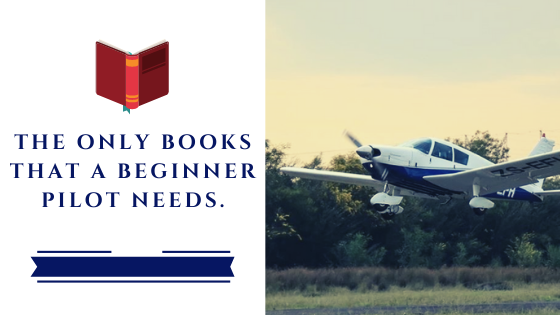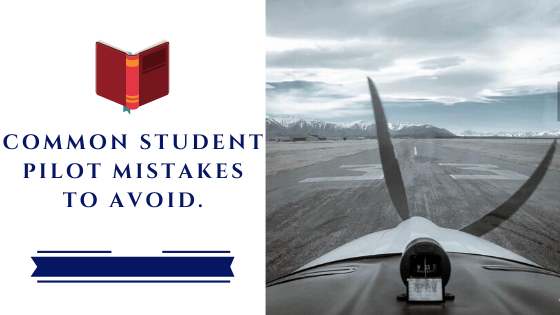Preparation Guide & Strategy for your private pilot checkride.
Here are some tips to help you prepare for a flight test:
- Review the Airman Certification Standards: The FAA publishes ACS for each type of pilot license. Review these standards carefully and ensure you understand each maneuver’s tasks and performance requirements.
- Study the Ground Material: The flight test includes an oral exam on aviation knowledge, so it’s crucial to study the ground material thoroughly. Make sure you understand topics such as aerodynamics, weather, navigation, and regulations.
- Practice, Practice, Practice: Practice each maneuver until you can perform it confidently and proficiently. Training in different weather conditions, such as calm winds, crosswinds, and gusty weather, builds confidence and improves your flying skills.
- Get Feedback: Seek feedback from a qualified flight instructor who can identify areas where you need improvement and provide tips for improving your performance.
- Mock Test: Conduct a mock test with a qualified flight instructor or pilot examiner to simulate the actual test conditions. By doing so, you can identify the areas of your weaknesses.
- Prepare Your Documents: Have all the required documents, such as your logbook, medical certificate, and pilot certificate, organized and readily available.
- Get Adequate Rest: Ensure to get fine rest the night before the flight test. A good night’s sleep helps reset your body and removes mental fatigue.
There is nothing to fear about your private pilot checkride if you prepare adequately. Studying increases your chances of success. The flight test aims to ensure your proficiency in flight. Thus be confident and have a positive attitude about the checkride.
Follow this post’s techniques and study materials to pass your PPL checkride confidently.
Many student pilots struggle during their checkride! By knowing what and how to study for the oral and practical exams, you can easily pass the checkride.
In this post, I shared valuable private pilot checkride preparation materials and methods to utilize all these.
Utilize the following materials to pass your Private Pilot checkride:
- ACS (Airman Certification Standards);
- PPL oral exam guide;
- FAR/AIM;
- Pilots Operating Handbook for your aircraft type;
- Chcekride Prep by Part-Time Pilot. (Optional).
As a bonus, I also included some tips for your practical exam day at the end of this article.
How to prepare for your private pilot checkride?
To pass your private pilot checkride, you must prepare for oral and practical exams. You can use books to understand beforehand what type of questions to expect from DPE. The examiner is there to approve your private pilot license. Thus you must prove that you are a safe pilot and aware of any complicated situation.
Satisfy your check pilot with your performance on the ground and in the flight.
It would be best if you were prepared for any uncertain situation to convince your examiner that you are ready to get a private pilot license.
Study the materials I shared in this post and refer to the airman certification standards frequently to learn not more than what you need during your private pilot licensing stage.
How can student pilots utilize everything to prepare for the PPL checkride?
First, I want to mention that your Flight Instructor endorsed you for a checkride because he is confident that you are ready to pass your private pilot checkride.
However, on rare occasions, student pilots fail their checkride and delay obtaining a private pilot license. You are here because you don’t want to be one of them.
To pass your checkride with excellence, you can’t rely on memorizing questions and answers.
You have to be ready beyond your DPE’s expectations and imagination. If you are reluctant to buy many books, I recommend you purchase at least these two books:
Studying these two books will keep you ahead of your DPE’s imagination because the examiner will not ask you anything outside the ACS. Unless you prove yourself highly knowledgeable, the DPE might ask something extra to see how well you know.
But remember, failure to answer anything outside the ACS will not compromise passing your checkride. The checkride is all about your decision-making and how organized you are to conduct safe flights.
Thus it is also crucial the day before checkride to visit the hangar and collect some items.
Studying these items will allow you to be more confident in your checkride:
- Collect engine, airframe, and propeller maintenance logs. Recognize what each piece of information indicates about the airplane’s airworthiness;
- Speak to your flight instructor and verify whether you have required logbook signoffs and endorsements or not;
- Complete the integrated airman certification and rating application;
- Prepare the flight plan for a cross-country flight where your DPE often goes and include the alternatives;
- Find out the METAR and forecast weather reports for your cross-country flight the next day;
You don’t need to go to the hangar for the last two points, but doing it with your Flight instructor will eliminate any chance of failing the checkride. But at this stage, you are supposed to forecast the weather and plan cross-country flights by yourself correctly.
Now let’s discuss how to utilize ACS, PPL oral exam guide, and other materials I mentioned in the beginning to pass the private pilot checkride.
Read the Airman Certification Standards thoroughly.
If you are still unsatisfied and think you may fail the exam, I suggest only one thing: Study the Airman Certification Standards (ACS).
You can find this online for free on the FAA website. Read that book thoroughly, and you will know what a private pilot needs to know to operate an aircraft safely.
The DPE will likely ask you questions that are relevant to the ACS. Any question outside the ACS is unnecessary to get a private pilot license.
So read the ACS, and you will know the private pilot oral exam.
RELATED: Private pilot license checkride pass rate.
Airman certification standards have everything a check pilot may ask you to do on your practical exam on checkride. This book helps with oral exams, too, but not entirely.
You can get ACS PDF online. But I recommend getting a hard copy.
Thoroughly studying ACS will give you an idea of what tasks to expect from your examiner on your checkride. If you have come this far in your private pilot training, you probably know most things.
However, use this book to reference what you know and which things you need to revise. Revising a subject will boost your confidence and help you become a proficient pilot.
The DPE does not expect a private pilot to learn more than what is necessary.
The ACS refers to standard private pilot risk management, safety, and maneuver skills. Things you learn from your ACS will help you in oral and practical exams.
Use ACS to verify what you missed during the flight training. If you see something unfamiliar, discuss it with your flight instructor and ask him to explain it.
If your DPE asks you anything out of the ordinary and is not in the ACS, don’t hesitate but try to complete that task if you can. This would mean that your DPE is satisfied with your performance and dig into seeing how good you are, or you can tell your examiner that you didn’t perform this during your private pilot training.
The examiner will understand what you mean.
It’s unlikely that the DPE will ask you to do something that will hinder your flight performance and steer you away from your actual purpose.
If you feel your DPE is asking you more than what you learned from your ACS, you can tell him that you did not see such maneuvers or tasks in the ACS.
Have a mock checkride with your flight instructor.
Did you take a mock checkride? If not, then you should take a mock checkride.
Ask your flight instructor and schedule a mock checkride. A mock checkride will help you understand the differences between training flights and a checkride.
The Designated Pilot Examiner at your location will ask similar questions during the oral exam.
The flight instructor in your location understands what kind of questions and what tasks the DPE will do during the checkride.
So you can request your CFI to ask questions similar to the DPE in your area. That’s how you can get a heads-up on your checkride with a check pilot.
After you take the checkride and your flight instructor is satisfied with your flight performance, your check ride will be simple.
However, if you have already passed your mock checkride, you must not worry about the oral exam. You already know what is essential to give your checkride and get your private pilot license.
How to use the PPL oral exam guide?
The Private Pilot oral exam guide is an excellent book to prepare for all the questions you may face during your oral test on checkride day.
This book won’t show you the exact questions your DPE will ask, but it’s a good reference for understanding what to expect.
Read the private pilot oral exam guidebook and try to answer the questions yourself. Once you are done answering, then check the correct answer. This way, you will clarify more aeronautical topics and understand an unfamiliar subject.
If a question seems brand new to you and you can’t answer, then you can refer to your favorite aeronautical book to study further.
Studying this manner will boost your confidence and answer all the challenging questions your examiner asks you.
Remember this: Your DPE will ask you scenario-based questions and what you must do in that situation.
Reading the PPL oral exam guide, you will learn how to use your existing knowledge to escape a problematic situation in flight.
The flight instructor will also ask for everyday calculations, acronyms, policies, and procedures to conduct safe flights. The oral exam aims to verify your safety and competence to have a private pilot license.
FAR/AIM
Get yourself the latest copy of FAR/AIM. Keep it with you on your checkride day. Your DPE would not prefer you to have an outdated FAR/AIM.
You can use this book to learn about your area’s latest airport regulations and air traffic control procedures.
On checkride day, the FAR/AIM can help you in many ways.
Before your exam day, go through the book and have an idea of the information in the book. Especially keep note of things your DPE would want to know on your check ride.
If your DPE asks you something you can’t remember, you can check through FAR/AIM and find the exact information.
Pointing out the most relevant information from FAR/AIM will gain the trust of your Check pilot. Your check pilot will know you are current on Federal Aviation Regulations.
If you forget about your destination airport procedure, refer to FAR/AIM and find the correct answer. By doing so, your check pilot will know that you are intelligent and don’t want any confusion during the flight.
However, if you take too long to find any information from the FAR/AIM, your examiner might think you are not good at flight planning. Therefore, prepare everything you need to know about your destination airport and the alternative airports before your flight.
Fold the pages of your destination airport information for easier access during checkride.
SECTION 2: Checkride requirements to ensure you don’t fail your oral exam.
Now that you have your flight instructor’s endorsement to take the private pilot checkride, you must ask yourself are confident enough to pass the exam.
Many student pilots lack confidence on the check-ride day. It is common for most pilots.
Although they are experts in flying a single-engine prop, they doubt themselves and think they might fail the exam.
But go through the following checklist to ensure you know everything to pass the private pilot chek-ride.
Typically you will do all these during your private pilot flight training. However, sharpening your skills before the exam will indeed increase your confidence.
Go on a cross-country flight using VFR charts and some radio navigation.
To improve the chances of passing your private pilot checkride, be ready to use ready navigation.
You don’t know what question your DPE may ask. Thus knowing how to use radio navigation, especially VOR, to navigate a flight will certainly help.
Although going to VFR cross-country flights using VFR sectional charts is the norm, knowing navigating using VOR will help.
Likewise, many pilots know how to use a VFR chart but don’t know what each sign and symbol means on a VFR chart.
So ensure you learn a bit about the sectional charts to answer a question in case your DPE asks any question about the symbol and signs on your sectional map.
Have a mock checkride with your CFI.
Many student pilots don’t understand the importance of a mock checkride.
But it helps massively to gain confidence for your actual oral exam.
Talk to your flight instructor and go on a mock checkride.
Most flight instructors have an idea about the DPE in your area. Flight instructors can demonstrate what kind of questions a particular DPE prefers to ask during oral exam maneuvers the DPE wants to see.
Next, you can have a flight where you will simulate an oral exam.
This simulated oral exam will give you an idea of what to expect during a private pilot checkride. After a mock check-ride, you will know how to answer your DPE while flying the airplane and pass the oral exam to obtain a private pilot license.
Be ready for any question that your DPE may ask.
Lastly, I believe the most critical requirement for a private pilot checkride is to prepare for any question the DPE may ask.
Your DPE will not ask any radical questions. Everything he wants to know is relevant to a private pilot license.
RELATED: What to expect on your private pilot oral exam?
So don’t fear and thoroughly read any good book for the private pilot license.
After you read a book, often question yourself in flight about why something happens and the correct answer to that question. That way, you will remember what you read in a textbook.
Your DPE will not ask any advance questions during your private pilot checkride. So if you know what you need to know for the private pilot stage, you will undoubtedly pass.
Don’t think you failed the exam if you fail to answer any advance question your DPE asks. Think of it like this: the DPE is satisfied with your performance and wants to know how much more you know.





